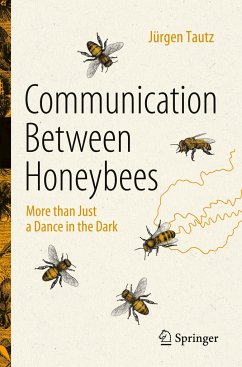
Hormones and Aggressive Behavior
Versandkostenfrei!
Versandfertig in 1-2 Wochen
154,99 €
inkl. MwSt.
Weitere Ausgaben:

PAYBACK Punkte
77 °P sammeln!
This volume is an overview of research examining the relationship between hormones and aggressive behavior. The last 15 years have witnessed a tremen dous growth of knowledge in this area, yet reviews written by specialists are virtually nonexistent. This work is an attempt to provide a comprehensive and cohesive synthesis of this literature. Chapters 1-7 provide an analysis of hor monal influences on the major forms of aggressive behavior, including intermale, interfemale, shock-induced, maternal, territorial, and predatory aggression. The focus of Chapters 8-12 is an examination of the mecha...
This volume is an overview of research examining the relationship between hormones and aggressive behavior. The last 15 years have witnessed a tremen dous growth of knowledge in this area, yet reviews written by specialists are virtually nonexistent. This work is an attempt to provide a comprehensive and cohesive synthesis of this literature. Chapters 1-7 provide an analysis of hor monal influences on the major forms of aggressive behavior, including intermale, interfemale, shock-induced, maternal, territorial, and predatory aggression. The focus of Chapters 8-12 is an examination of the mechanisms through which hormones might act to produce changes in agonistic responding. Genetic, de velopmental, neural, and biochemical influences are considered. It is well known that environment, social context, and experience modulate the effects of hor mones on behavior. Thus, Chapters 13-15 are designed to review the literature concerning hormone-pheromone interactions, hormonal responses to compe tition, and the influence of social context on the endocrine system and aggressive behavior. Frequently, the principles advanced by behavioral endocrinologists are based on research in one species, the rodent. To provide a more comparative perspective and to examine specifically the generality of those principles gen erated for rodents, Chapters 16-22 examine hormone-aggression relationships in a variety of species, including fish, birds, amphibians, reptiles, infrahuman primates, humans, ungulates, and insects. This volume should be useful to both beginning and advanced researchers in animal behavior, behavioral endocri nology, physiological psychology, neuroendocrinology, zoology, physiology, and psychiatry.















